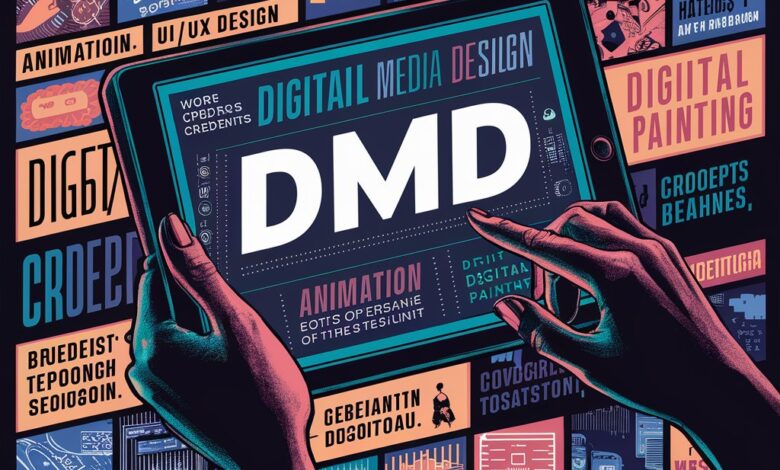Understanding the DMD Credential

The History and Evolution of the DMD Degree
The DMD degree, standing for Doctor of Medicine in Dentistry or Doctor of Dental Medicine, has a storied history that reflects the evolution of dental education. Originally, all dentists were awarded a DDS, or Doctor of Dental Surgery, degree. However, as the field expanded and the approach to dental care became more medically oriented, the DMD degree was introduced to emphasize the medical aspects of dental education.
The transition to the DMD degree marked a significant shift in the perception of dentistry. It underscored the importance of comprehensive medical knowledge in dental practice, aligning more closely with the broader field of healthcare. This change was not just in name but also in the educational emphasis placed on future dental practitioners.
The introduction of the DMD degree was a pivotal moment in dental education, symbolizing a deeper integration of dental and medical sciences.
While the DDS and DMD degrees are equivalent in the level of education and clinical training required, the distinction remains a topic of discussion within the dental community. Both credentials qualify a dentist to practice, but the choice of degree name can reflect the philosophy and history of the dental school conferring it.
DMD vs. DDS: Unraveling the Acronyms
When choosing a dentist, you may notice some have a DMD title, while others boast a DDS designation. Both DMD (Doctor of Medicine in Dentistry) and DDS (Doctor of Dental Surgery) signify that an individual is a licensed dentist. The difference between the two lies not in the level of education or competence, but rather in the title awarded by the dental school from which they graduated.
- DMD: Awarded by dental schools that wish to emphasize the medical aspects of dental education.
- DDS: Given by institutions focusing on the surgical side of dental training.
The curriculum for both DMD and DDS degrees is essentially the same, with both requiring a comprehensive understanding of dental medicine and surgery.
Ultimately, whether a dentist holds a DMD or DDS degree, patients can expect a professional capable of providing high-quality dental care. The distinction is more historical and institutional than indicative of the dentist’s skill set or expertise.
Educational Pathway to Becoming a DMD
The journey to becoming a Doctor of Medicine in Dentistry (DMD) is a challenging and structured process that requires dedication and a strong academic foundation. Prospective dental students must first complete a bachelor’s degree, typically with a focus on science-related courses to prepare for dental school admission requirements.
Following undergraduate education, candidates must pass the Dental Admission Test (DAT), which assesses their suitability for a career in dentistry. Acceptance into a DMD program is competitive, with schools looking for high DAT scores, strong letters of recommendation, and relevant experience in the field.
The DMD curriculum is designed to provide comprehensive knowledge and hands-on experience in all aspects of dental medicine.
Once admitted, students embark on a rigorous four-year curriculum that includes both didactic coursework and clinical training:
- First and Second Years: Focus on foundational sciences, dental anatomy, and preclinical practice.
- Third Year: Transition to clinical rotations, treating patients under supervision.
- Fourth Year: Advanced clinical practice and preparation for licensure exams.
Upon completion of the DMD program, graduates must pass national and state licensing exams to practice dentistry. The educational pathway to becoming a DMD is arduous but ultimately rewarding, as it equips future dentists with the skills and knowledge necessary to provide exceptional patient care.
The Rigorous Curriculum of DMD Programs
The journey to earning a DMD degree is marked by a challenging and comprehensive curriculum designed to prepare students for all facets of dental practice. Core subjects include advanced human biology, pharmacology, and pathology, ensuring a deep understanding of the human body and the science behind dental medicine.
Courses in the DMD program are structured to provide a blend of theoretical knowledge and practical skills:
- Basic sciences and preclinical courses in the first two years
- Clinical sciences and patient care in the final years
The curriculum is continuously updated to incorporate the latest advancements in dental technology and treatment methods, reflecting the dynamic nature of the dental field.
Students also engage in community service and outreach programs, which are integral to their professional development. These experiences not only enhance their clinical skills but also instill a sense of social responsibility and patient empathy.
The Role of DMD Dentists in Rolling Hills Dental Care
Comprehensive Dental Services Offered by DMDs
At Rolling Hills Dental Care, a rolling hills dentist with a DMD qualification represents the pinnacle of dental education and expertise. But what is a DMD dentist, exactly? A Doctor of Medicine in Dentistry (DMD) is a professional who has undergone extensive training to provide a wide range of dental services.
- Preventive care and routine checkups
- Restorative procedures such as fillings and crowns
- Cosmetic dentistry, including teeth whitening and veneers
- Orthodontics for alignment and bite correction
- Periodontal therapy for gum disease
- Oral surgery for extractions and implants
The DMD dentists at Rolling Hills Dental Care are committed to offering comprehensive services that cater to the unique needs of each patient. Their dedication to maintaining and restoring oral health is evident in the personalized care they provide.
The Importance of Continuing Education for DMD Professionals
Continuing education is a cornerstone of dental practice, especially for DMDs at Rolling Hills Dental Care. Ongoing learning ensures that dentists stay at the cutting edge of dental science and patient care techniques. It’s not just about fulfilling mandatory education requirements; it’s about a commitment to excellence and the highest standards of care.
- Staying updated with the latest dental technologies
- Mastering new treatment methodologies
- Understanding evolving patient care practices
- Adapting to changes in dental regulations and compliance
The pursuit of continuing education reflects a DMD’s dedication to their craft and their patients. It is an investment in their professional growth that ultimately benefits the community they serve.
By regularly participating in professional development courses, workshops, and seminars, DMDs can expand their expertise and refine their skills. This proactive approach to education helps to foster a culture of learning and innovation within the dental community.
How DMD Dentists Enhance Patient Care
DMD dentists at Rolling Hills Dental Care play a pivotal role in elevating the standard of patient care through their advanced clinical skills and patient-centered approach. Their commitment to utilizing the latest dental technologies and techniques ensures that patients receive the most effective and comfortable treatments available.
- Personalized treatment plans tailored to individual needs
- Emphasis on preventive care to avoid future dental issues
- Use of minimally invasive procedures for better patient outcomes
The integration of comprehensive care with a focus on education empowers patients to take an active role in their dental health, fostering a partnership that leads to improved long-term oral health.
DMD professionals at Rolling Hills are not just providers of dental services; they are advocates for their patients’ overall well-being. By continuously seeking out new learning opportunities and staying abreast of advancements in dental medicine, they ensure that the community benefits from high-quality, up-to-date care.
Community Involvement and Outreach by Rolling Hills DMD Dentists
The dentists at Rolling Hills Dental Care extend their expertise beyond the clinic walls, actively engaging in community outreach and public health initiatives. Their commitment to community well-being is evident in the various programs they lead and participate in.
- Free dental check-up camps for underserved populations
- Oral health awareness workshops in schools
- Sponsorship of local sports teams promoting healthy lifestyles
- Volunteer services at community health fairs
The impact of these outreach efforts is profound, fostering a healthier community and increasing access to dental care for those who might otherwise go without.
These activities not only serve the public but also provide invaluable experiences for the dentists, keeping them connected to the community’s needs and enriching their professional practice.
Frequently Asked Questions
What is the difference between a DMD and a DDS dentist?
DMD (Doctor of Medicine in Dentistry) and DDS (Doctor of Dental Surgery) are two types of degrees that dental schools award upon graduation. Both degrees represent the same education and grant the same level of clinical practice rights. The difference is mainly in the name and the school that awards the degree.
How long does it take to complete a DMD program?
Typically, a DMD program takes four years to complete following an undergraduate education. This includes both classroom instruction and clinical experience. Some programs may offer accelerated paths or additional years for specializations.
Can DMD dentists provide the same treatments as DDS dentists?
Yes, DMD and DDS dentists are equally qualified to provide a wide range of dental treatments. This includes general dentistry services as well as specialized procedures, depending on their training and experience.




